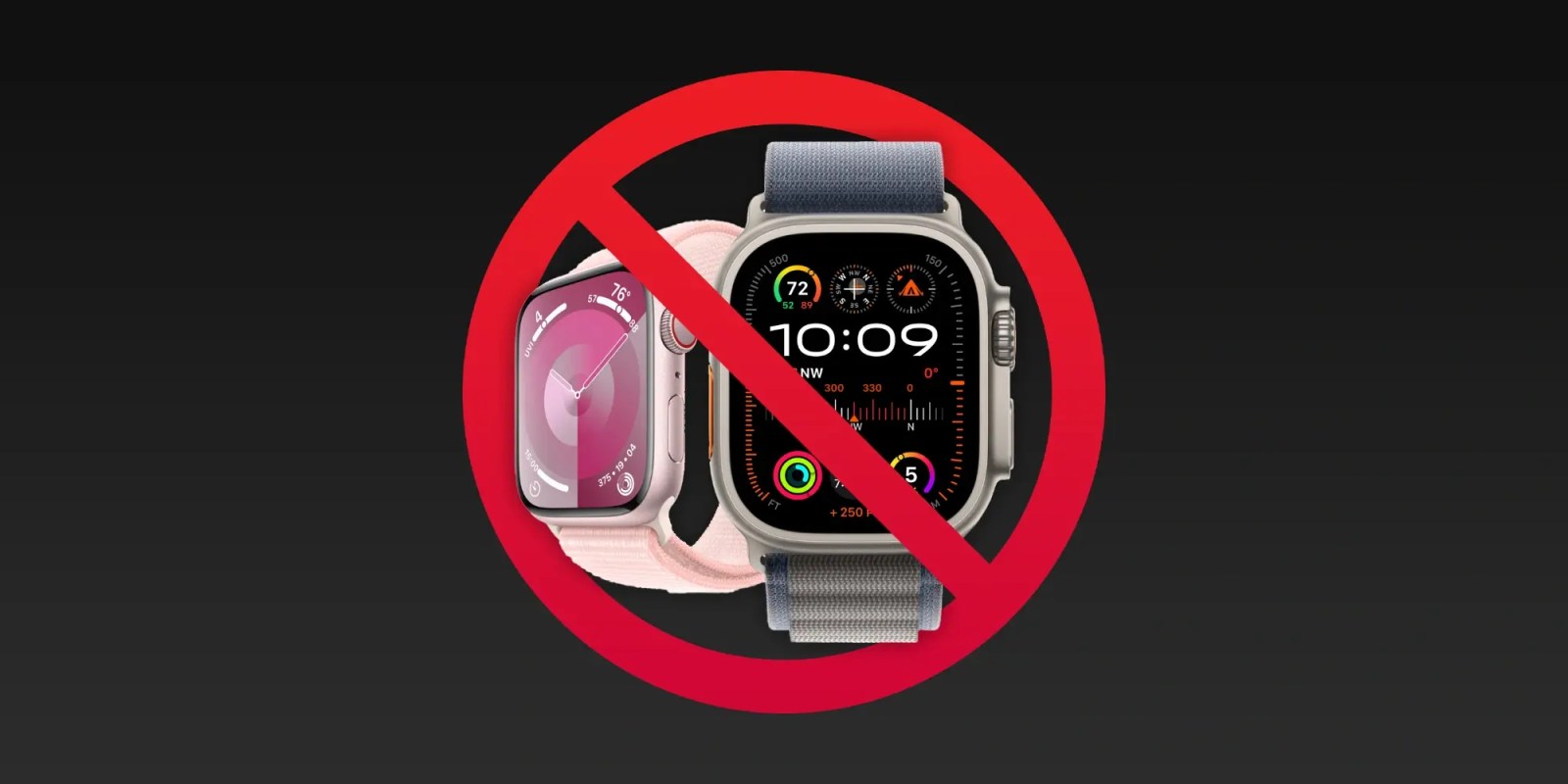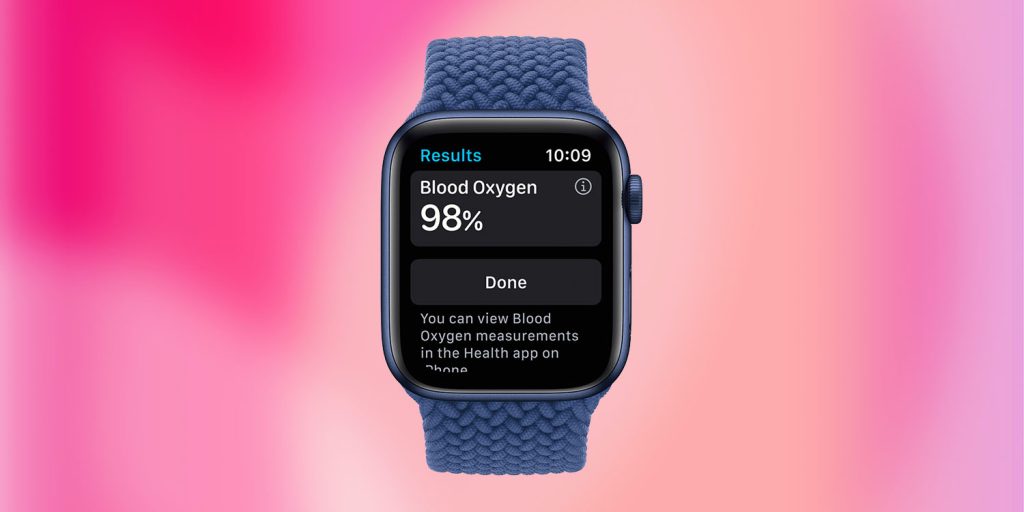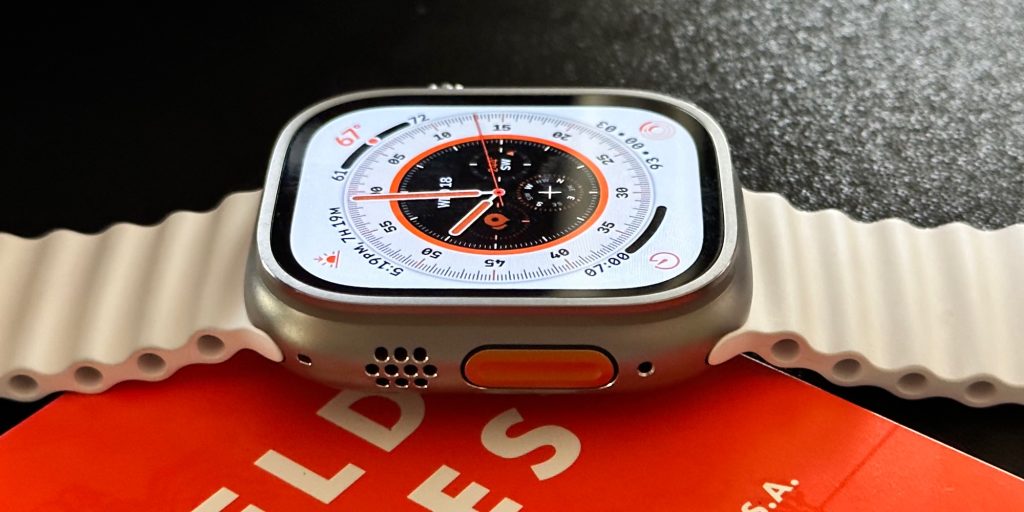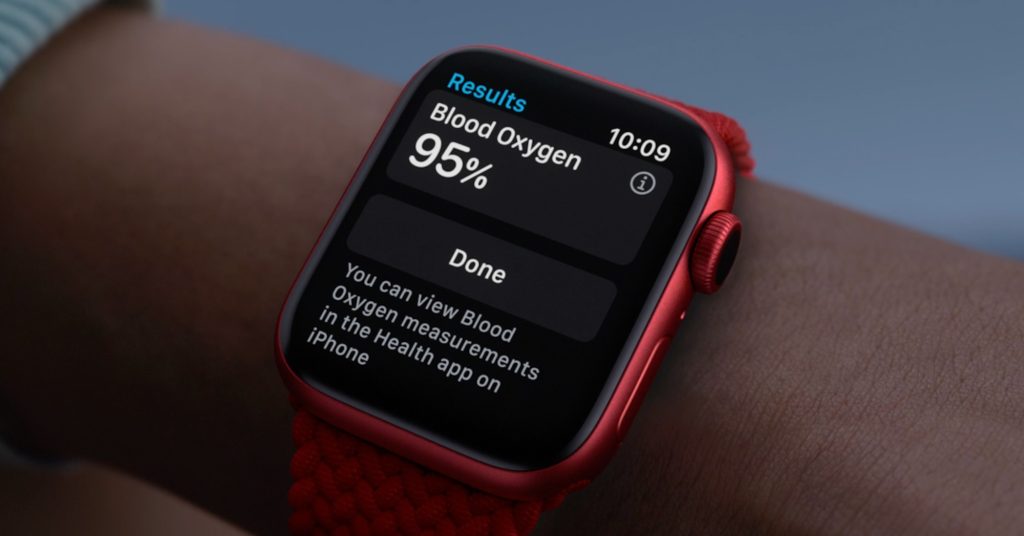

In a statement to 9to5Mac, Apple has announced that it will soon halt sales of its flagship Apple Watch models in the United States.
The Apple Watch Series 9 and Apple Watch Ultra 2 will no longer be available to purchase from Apple starting later this week.
The move comes following an ITC ruling as part of a long-running patent dispute between Apple and medical technology company Masimo around the Apple Watch’s blood oxygen sensor technology.
The Apple Watch Ultra 2 and Apple Watch Series 9 will no longer be available to order from Apple’s website in the U.S. after 3 p.m. ET on Thursday, December 21. In-store inventory will no longer be available from Apple retail locations after December 24.
The International Trade Commission announced its ruling in October, upholding a judge’s decision from January. This sent the case to the Biden administration for a 60-day Presidential Review Period.
During this process, President Biden could veto the ruling, although this has not yet occurred. The Presidential Review Period expires on December 25, and Apple is making this announcement today to “preemptively” take steps to comply with the ITC’s decision.
Apple says that the ITC’s ban only impacts sales of the Apple Watch Series 9 and Apple Watch Ultra 2 because those devices offer blood oxygen monitoring capabilities. The lower-end Apple Watch SE, which lacks this sensor, is unaffected and will remain available for sale.
The ITC’s decision only prohibits Apple from selling the affected Apple models. For now, this means the devices will remain available for purchase from other outlets including Amazon and Best Buy. Our friends over at 9to5Toys also have details on some get-them-while-can Apple Watch deals.
However, the order does block all Apple Watch Series 9 and Ultra 2 imports to the United States after December 25. At this point, Apple would also be prohibited from selling those devices to resellers, as well. So if the ruling is upheld, it could subsequently impact Apple Watch availability for other retailers as well.
Meanwhile, any Apple Watch with a blood oxygen sensor that has already been sold is unaffected by today’s news. The blood oxygen sensor first debuted with the Apple Watch Series 6 in 2020. Existing Apple Watch models with blood oxygen monitoring will continue to function without change. The ITC ban only applies to new sales of affected Apple Watch models.
The ITC order also makes an exception for the service, repair, or warranty period of units sold prior to December 25.
Here is Apple’s full statement to 9to5Mac:
A Presidential Review Period is in progress regarding an order from the U.S. International Trade Commission on a technical intellectual property dispute pertaining to Apple Watch devices containing the Blood Oxygen feature. While the review period will not end until December 25, Apple is preemptively taking steps to comply should the ruling stand. This includes pausing sales of the Apple Watch Series 9 and Apple Watch Ultra 2 from Apple.com starting December 21, and from Apple retail locations after December 24.
Apple’s teams work tirelessly to create products and services that empower users with industry-leading health, wellness, and safety features. Apple strongly disagrees with the order and is pursuing a range of legal and technical options to ensure that Apple Watch is available to customers.
Should the order stand, Apple will continue to take all measures to return Apple Watch Series 9 and Apple Watch Ultra 2 to customers in the U.S. as soon as possible.
Apple and Masimo’s history

Masimo, a medical technology company, has been embroiled in multiple legal disputes with Apple for years. The disagreements center around accusations from Masimo that Apple Watch blood oxygen sensor technology infringes on several Masimo patents.
There are two parts to this situation. First, there’s a lawsuit filed by Masimo against Apple in the US District Court in the Central District of California in early 2020.
Second, there’s a case filed by Masimo with the International Trade Commission in June 2021.
Masimo started its campaign with the ITC because it was frustrated by the slow pace of the initial district court case. The ITC complaint is what is pressuring Apple to preemptively halt Apple Watch Series 9 and Apple Watch Ultra 2 sales in the United States.
The ITC case and Apple Watch ban
In its initial filing with the ITC, Masimo accused Apple of 103 instances of patent infringement across five different patents. However, the ITC found that Apple infringed on only two patents, covering five different instances of patent infringements – each related to the Apple Watch’s pulse oximeter feature.
The ITC handed down this order in October, starting the clock on a 60-day Presidential Review Period, now set to expire on December 25. The Biden administration can step in and veto the ITC ban, but so far the White House has chosen not to act.
Apple emphasizes that today’s announcement and upcoming suspension of Apple Watch sales is the company “preemptively taking steps to comply should the ruling stand.”
It is rare for a president to veto a decision from the ITC, although Apple is no stranger to the process. The last time such a veto occurred was in 2013 when President Obama vetoed a ban on the iPhone as part of Apple’s extended legal dispute with Samsung. Prior to that, the previous presidential veto involved Samsung when the Reagan administration vetoed an ITC ban on all products using Samsung semiconductor memory chip imports in 1987.
The impact of an Apple Watch ban
Barring a last-minute veto, why might the Apple Watch ban occur despite the iPhone ban being avoided? Experts have argued that the Apple Watch doesn’t have the same economic impact as the iPhone, making a Biden veto of the ITC ruling unlikely.

Apple sees things differently, arguing that the ITC’s finding was unfounded and should be reversed. The company has outlined multiple reasons why it believes the Biden administration should step in and veto the ruling.
Apple believes that the ITC’s decision will harm Apple suppliers as well as consumers, potentially leading to a greater impact on the overall economy.
Apple’s wearables business generated $13.48 billion in revenue during the Q1 2023 holiday quarter. This number underscores the impact of the Apple Watch for both Apple and its broader supply chain economy.
The company also emphasizes the Apple Watch’s life-saving ability to help users discover potential issues with their health. In its lobbying with the United States Trade Representation, Apple has enlisted the American Heart Association and other leading health organizations and physicians to tout the health benefits of the Apple Watch hardware.
Another factor Apple believes the ITC should consider is the impact this could have on ongoing and future clinical health studies that rely on the Apple Watch.
Apple says Masimo has attempted to use this litigation against Apple as a way to boost the launch of its own smartwatch product. Apple filed two patent infringement lawsuits against Masimo in October 2022, accusing the company of copying patented features of the Apple Watch.
If the ITC decision is upheld, Apple says that Masimo would see no real benefit itself because the Masimo smartwatch is not a substitute for the Apple Watch.
What happens next?
As of right now, there is no timeline on how long the Apple Watch Ultra 2 and Apple Watch Series 9 will be unavailable for purchase. The Biden administration could still step in and veto the ITC exclusion. If the ITC’s decision is upheld, there are a few ways forward.
Apple can appeal the ITC’s final decision with the US Court of Appeals for the Federal Circuit once the Presidential Review Period has expired. As such, the company tells 9to5Mac that it plans to file an appeal on December 26. Appealing the decision, however, will not delay the ban on Apple Watch Series 9 and Apple Watch Ultra 2 sales and imports.
The two Masimo patents that the ITC says Apple Watch infringes aren’t set to expire until August 2028.

There are other paths Apple can pursue, including a potential settlement and licensing agreement with Masimo. It can also attempt to design around those two Masimo patents, such as with firmware changes to the Apple Watch software.
But at this point, Apple has not shared any future plans. The company says additional information will be available at the conclusion of the Presidential Review Period on December 25.
Ultimately, there are still a lot of unknowns about what happens next considering this unprecedented development. Apple says that it will “continue to take all measures to return Apple Watch Series 9 and Apple Watch Ultra 2 to customers in the U.S. as soon as possible.”
In a previous statement, Masimo said that the ITC’s ban “sends a powerful message that even the world’s largest company is not above the law.”
A separate district court case
Separately, Masimo filed a lawsuit against Apple in early 2020, accusing Apple of patent infringement and trade secret misappropriation. Apple challenged the patents in that case with the United States Patent Office, asking the agency to re-review the patents that were initially granted to Masimo.
The Patent Trial and Appeal Board reviewed 17 different Masimo patents as part of this process and found that 15 of them were invalid. Masimo is appealing those decisions.
As for Masimo’s accusations of trade secret misappropriation, that case went to trial back in May. The judge rejected five out of 10 of Masimo’s claims, saying there was not enough evidence to send those claims to the jury.
The remaining claims were put in front of the jury, where six of the seven jurors found in favor of Apple. The remaining juror disagreed, and the jury eventually concluded that it would not be possible to reach a unanimous verdict. The judge in the case declared a mistrial, and it will be retried at a yet-to-be-determined date.
Follow Chance: Threads, Twitter, Instagram, and Mastodon.
FTC: We use income earning auto affiliate links. More.
Discover more from reviewer4you.com
Subscribe to get the latest posts to your email.






